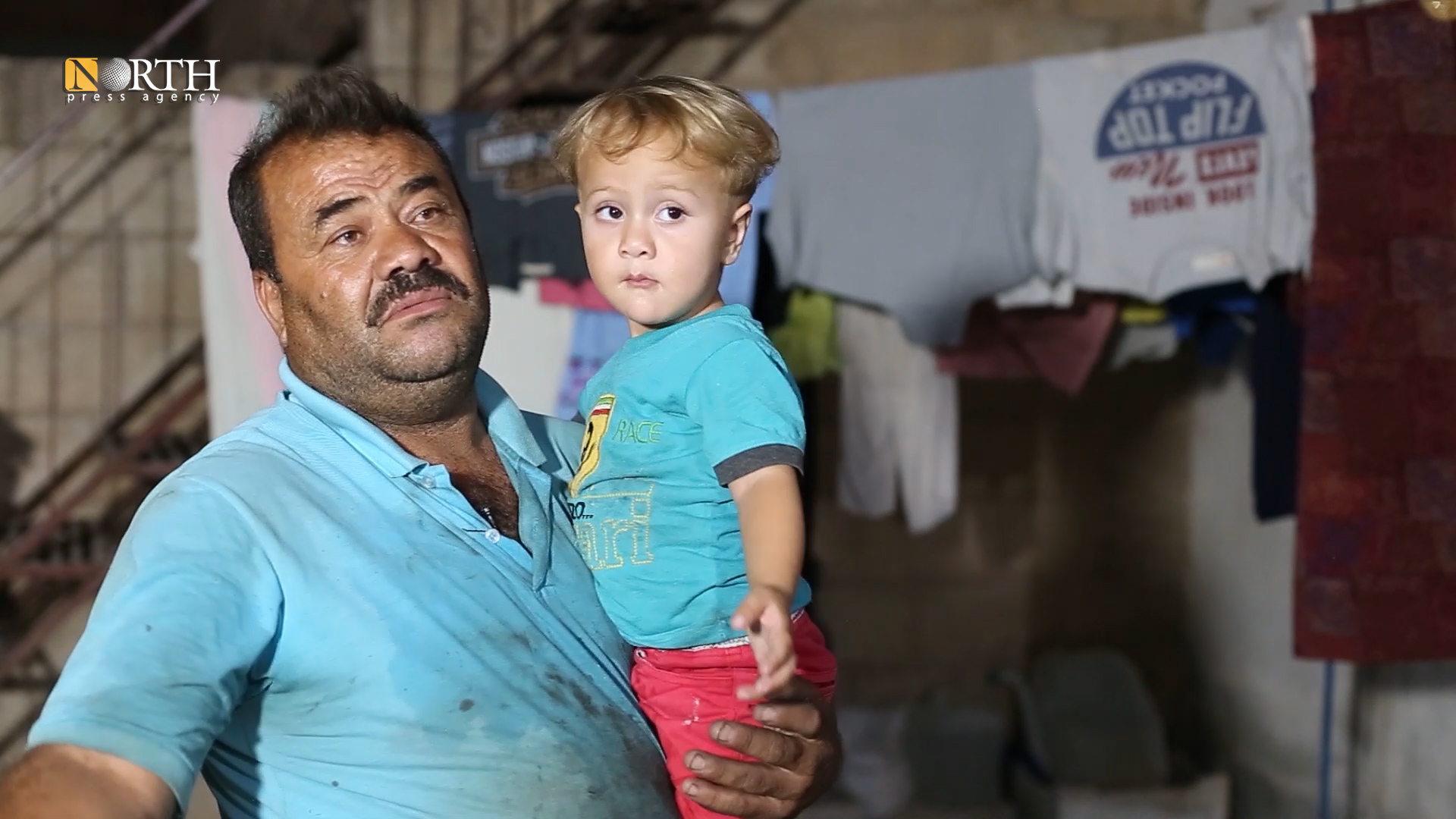Water shortage in Hasakah burdens suffering Sere Kaniye IDPs in north Syria
HASAKAH, Syria (North Press) – With dirty clothes and an exhausted body, Mohammed Sheikho arrives at his home in the city of Hasakah, northeastern Syria, on a daily trip after spending hours working in a vehicle electrical service shop in the countryside of Sere Kaniye (Ras al-Ain), north of Hasakah.
Since Turkish forces cut off the water from Hasakah more than two weeks ago, Sheikho has to bring a container of drinking water every day to meet his family’s needs.
“Water has been cut off for 20 days. We can bear all difficulties except thirst. We are facing a humanitarian disaster,” Sheikho said.
Sheikho is from the city of Sere Kaniye, and was displaced to Hasakah with the start of the Turkish army and its affiliated opposition groups’ attacks on the city in October of 2019.
Sheikho works in a shop for the maintenance of car electrical systems in the village of Kasra, located near Abu Rasin town. He travels nearly 170 km back and forth in order to secure needs for his family.
Sheikho buys a 50 liter container of water with a from the city of Abu Rasin, puts it in the back of his car, and takes it with him daily to secure his family’s drinking needs as a result of Turkey’s continued cutoff of water from the city of Hasakah.
“I come home late from work, because I am looking for a well of drinking water. I cannot stand for hours waiting for a tanker to fill my household tank with water, so I bring a jug of water from Abu Rasin. My wife uses it for preparing food too,” Sheikho added.
Turkey’s cutoff of water from the Alouk station in the countryside of Sere Kaniye, which supplies the city of Hasakah and its ccountrysidewith water, has deprived nearly one million people of water.
Sheikho added that if he tried to secure water in Hasakah, he would be forced to leave work and his only source of living.
The residents of Hasakah city completely depend on tankers to secure their need for potable water, especially since the water from wells is salty and undrinkable.
Residents complain about the water tank owners, as they did not respond to them quickly, in addition to their high prices of water, which reaches 7,000 Syrian pounds for one tank of water (with a capacity of five barrels).
Sheikho’s neighbor has a saltwater well, so he depends on it to fill his household water tanks as he uses it for cleaning and washing, since it is undrinkable.
Sheikho is afraid of the spread of coronavirus, which is threatening the lives of the city’s residents, after the recording of 91 infections, including 11 deaths so far, according to a statement by the Health Directorate of Hasakah city to North Press.
Sheikho said, “Coronavirus spread widely in the city, and doctors advise that sterilization and cleaning is the best way to protect ourselves. But how will we protect ourselves and our families without water?”
He indicated that they are in a state of alert in light of the lack of water, and they do not use water except when absolutely necessary.
Over the past few months, most of the residents of Hasakah city have dug wells to obtain water in order to be able to carry out cleaning and washing work, as the city’s streets witness crowds of residents in front of the wells carrying empty containers to obtain water.
Sheikho points out that some of his neighbors quarreled a while ago over the well in the neighborhood as a result of the pressure. “Water cuts for a long time are considered a major disaster, and the residents can no longer bear more.”
Water cutoff has caused people to face a critical health situation in the light of the coronavirus outbreak, according to data released by Human Rights Watch, the United Nations Children’s Fund (UNICEF), and other international organizations.
As he emptied the container of water, Sheikho started to play with his children, whom he only sees in the late evening, before having a bath in the well water and resting, perhaps to help him forget about life’s atrocities.

